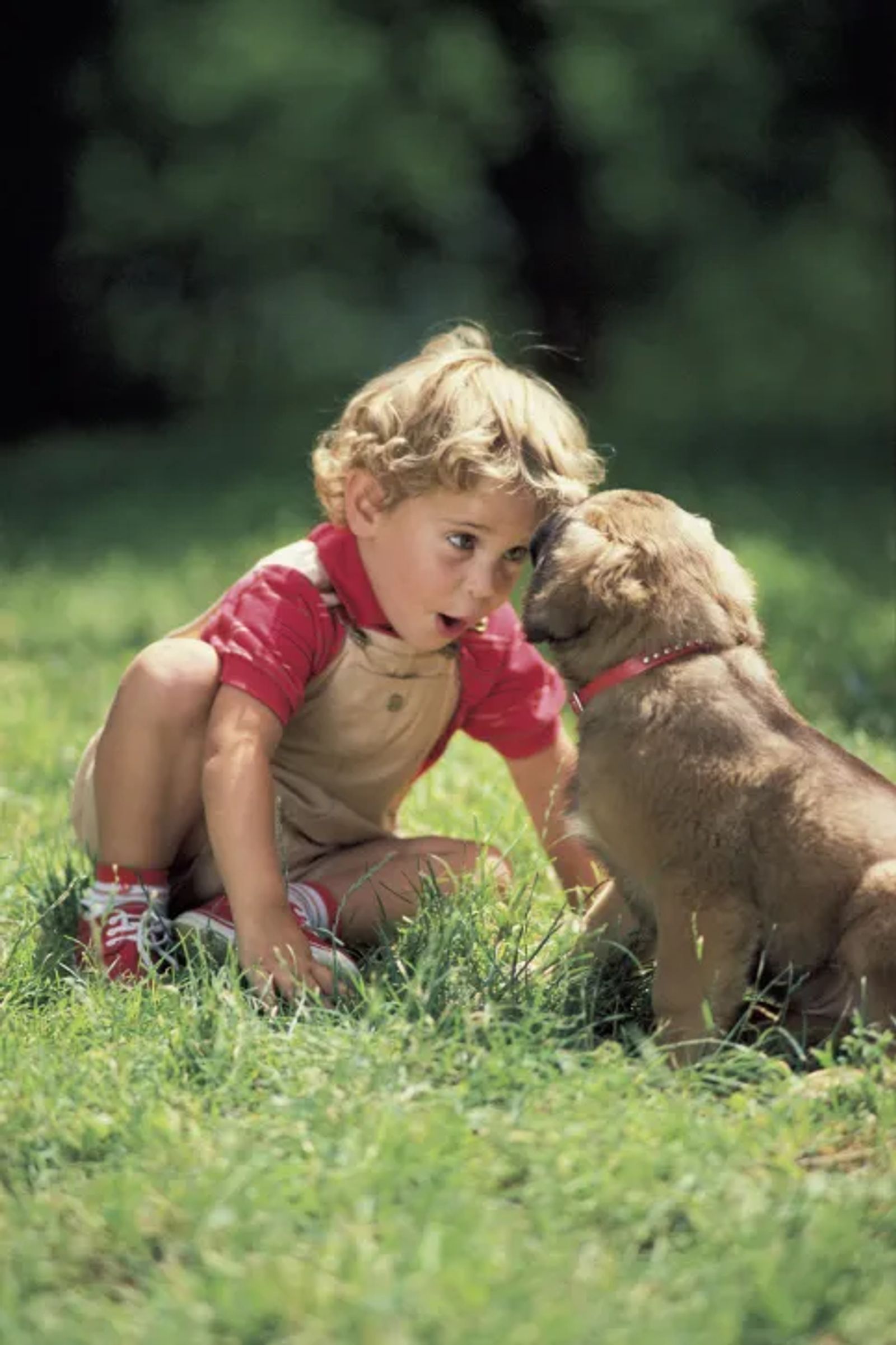
Aside from heart-melting cuteness, what do puppies and human babies have in common? The answer is “sensitive periods.” Like most babies, puppies experience critical “sensitive periods” of development. According to the Monks of New Skete, authors of the bestselling book, The Art of Raising a Puppy, when it comes to puppies, timing is everything. Adopt too soon and you may wind up with a fearful or aggressive dog, too late and improper training can become an issue.
Have you ever brought a puppy home? Was it an impulse decision, or did you do a bit of research first? Bringing a new puppy into your home is a BIG deal, right? You want to make sure you get the right dog, at the right time for your family…and for the pup. But, what is the right age to adopt a puppy and what does this have to do with sensitive periods?
According to The Art of Raising a Puppy, puppies experience critical stages of development, especially during the first four months of their lives. During this time, the puppy’s brain is rapidly developing neural pathways. These developmental pathways are so important that they can shape the animal’s character for life.
For example, puppies between 4 and 16 weeks of age experience an intense sensitive period for socialization. This sensitive phase peaks between 21 and 28 days. Separating a pup from his mother and littermates during this crucial period will almost certainly cause irreversible mental and physical damage.
Likewise, puppies at this age must be handled by humans frequently so that they learn to trust and bond with people. Puppies that are not adequately socialized during this critical window of opportunity do not understand the relationship between their actions (cause) and the reaction (effect) that they elicit. This goes for human and canine reactions alike. The result will be a nearly untrainable puppy because he does not understand how your rewards or punishments pertain to his actions. He will also not know how to interact with other dogs, (i.e. how NOT to annoy them.) Ultimately, this puppy will be fearful or aggressive toward his own kind.
In short, when we are responsible for a puppy’s life, it is imperative to know about these developmental stages and to provide the right exposure at the right time. Being the Montessori enthusiast that I am, I read this and immediately thought, So puppies experience critical sensitive periods, just like children. Maria Montessori discovered the existence of sensitive periods in young children nearly a century ago.
“Such instincts are not so much reactions to the environments as delicate inner sensibilities, intrinsic to life, just as pure thought is an entirely intrinsic quality of the mind. We might continue the comparison and look at them as 'divine thoughts' working in the inmost centers of living creatures, leading them subsequently to action in the outer world in realization of the divine plan.” ~ Maria Montessori
Scientists (and dog trainers,) are just beginning to catch up to Montessori’s comprehensive knowledge of sensitive periods. Montessori used her in-depth understanding of the child’s sensitive periods to create her remarkable teaching method. She knew the importance of recognizing and meeting the needs of the child during a sensitive period. If a child misses his or her developmental window of opportunity, it becomes much more difficult to absorb the information. Worse yet, if we (parents and educators) are not aware of these periods, we may inadvertently close windows that can never be opened again:
“We cannot know the consequences of suppressing a child's spontaneity when he is just beginning to be active. We may even suffocate life itself. That humanity which is revealed in all its intellectual splendor during the sweet and tender age of childhood should be respected with a kind of religious veneration. It is like the sun which appears at dawn or a flower just beginning to bloom. Education cannot be effective unless it helps a child to open up himself to life.” ~Maria Montessori
If you would like to learn more about these critical periods of child development, please click here.























